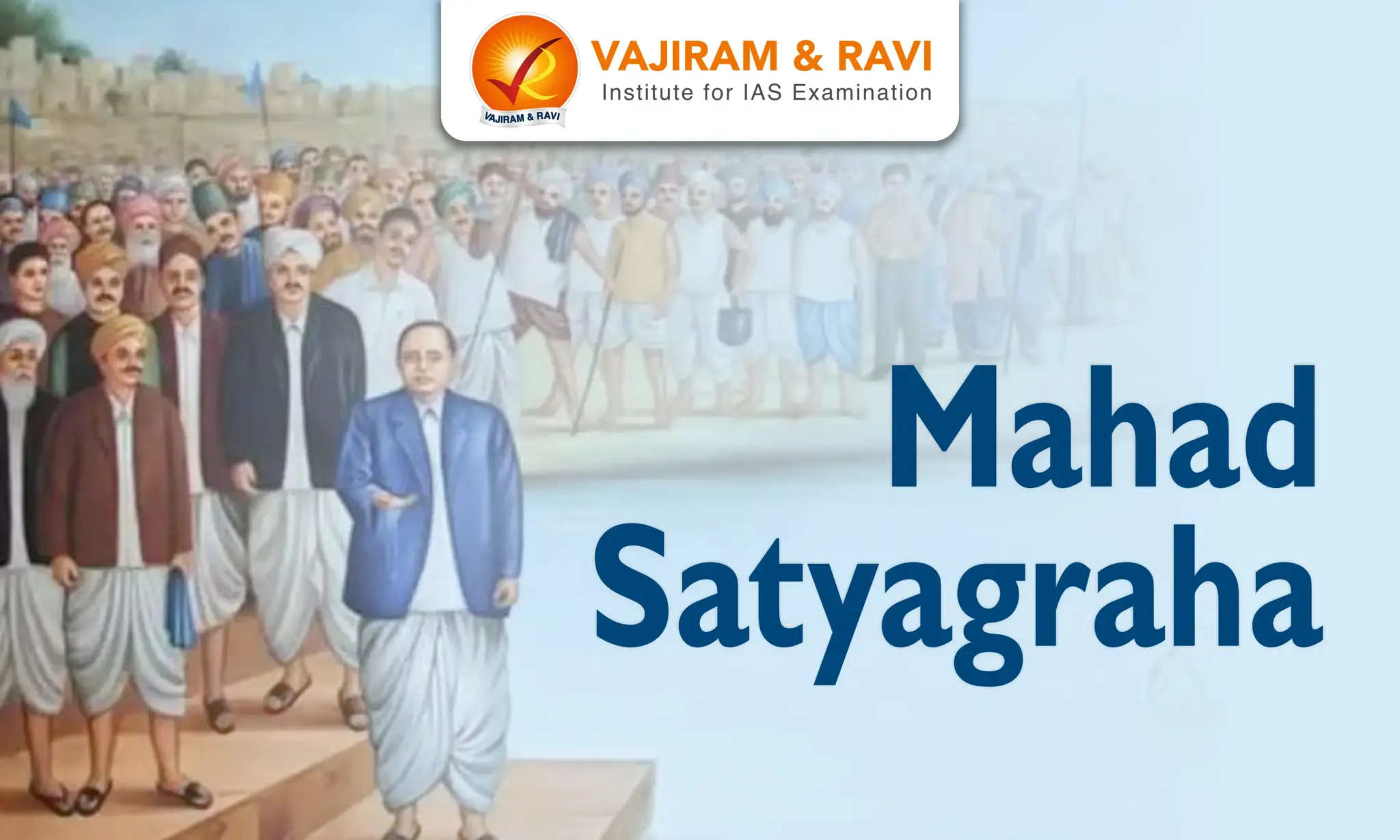Dr. Vikram Sarabhai, often referred to as the "Father of the Indian Space Program," was a visionary scientist, space physicist, and astronomer who played an instrumental role in shaping India's space research and exploration endeavours.
His significant contributions to space science and technology have left a profound mark on India's scientific landscape.
Vikram Sarabhai - Background
Dr. Vikram Sarabhai was a renowned Indian physicist and astronomer who played a pivotal role in the development of India's space program. He was a great institution builder who not only established but also assisted in establishing several institutions in various fields.
Early Life and Education of Vikram Sarabhai
- Vikram Sarabhai was born on August 12, 1919, in Ahmedabad, Gujarat.
- His father, Ambalal Sarabhai, was an industrialist and was associated with the Ahmedabad mill strike of 1918.
- He studied at the University of Cambridge; he returned to India after the breakout of the Second World War and joined the Indian Institute of Science in Bangalore.
- Here, he began research on cosmic rays under the supervision of Sir C. V. Raman.
- After the war, he again returned to Cambridge in 1945 and received a PhD in 1947 for his thesis, “Cosmic Ray Investigation in Tropical Latitudes”.
- He returned to India after receiving his PhD to continue his research in cosmic ray physics.
- He studied interplanetary space, solar-terrestrial interactions, and geomagnetism.
- Vikram Sarabhai passed away on December 30, 1971, in Kerala.
Career
After returning to India, Vikram Sarabhai embarked on a fruitful career in academia and research.
- Physical Research Laboratory (PRL): After his return in 1947, he played an instrumental role in establishing the Physical Research Laboratory (PRL) in Ahmedabad.
- At PRL, he conducted groundbreaking research in cosmic rays and space physics.
- Community Service Centre: He founded the Community Science Centre (later renamed Vikram A. Sarabhai Community Science Centre) under the auspices of the Nehru Foundation for Development.
- ISC: He served as the President of the Physics Section of the Indian Science Congress in 1962.
- Atomic Energy Commission: Vikram Sarabhai was appointed Chairman of the Atomic Energy Commission under the Government of India in 1966.
- ISRO: He served as the Chairman of the Indian National Committee for Space Research (INCOSPAR) from 1962 to 1969 and later served as the first chairman of the Indian Space Research Organisation (ISRO) from 1969 to 1971.
- IAEA: He served as the President of the General Conference of the International Atomic Energy Agency in 1970.
- U.N. Conference on 'Peaceful Uses of Atomic Energy’: He served as the vice-president of the Fourth U.N. Conference on 'Peaceful Uses of Atomic Energy' in 1971.
Contributions of Vikram Sarabhai
Vikram Sarabhai made a number of significant contributions to science and technology, particularly in the fields of space and nuclear technology.
Indian Space Program
- Foundation of ISRO: One of the most notable accomplishments of Vikram Sarabhai was the establishment of ISRO.
- After the Russian Sputnik launch, he successfully persuaded the government of the significance of a space programme for a developing country like India.
- As a result, INCOSPAR was established in 1962 and later renamed ISRO.
- First rocket launching station: Vikram Sarabhai, along with the support of Homi Jehangir Bhabha, set up the first rocket launching station (Thumba Equatorial Rocket Launching Station) in 1963 in India at Thumba near Thiruvananthapuram.
- SITE Project: As a result of Vikram Sarabhai's dialogue with NASA in 1966, the Satellite Instructional Television Experiment (SITE) was launched between July 1975 and July 1976.
- Pioneer of the first Indian satellite: Vikram Sarabhai began work on a project to build and launch an Indian satellite.
- As a result, the first Indian satellite, Aryabhata, was launched into orbit from a Russian Cosmodrome in 1975.
Nuclear Energy
- Atomic Energy Commission: Vikram Sarabhai served as Chairman of the Atomic Energy Commissionafter the death of Homi Jehangir Bhabha.
- He was largely responsible for the establishment and development of India's nuclear power plants, carrying on Bhabha's work in the field of nuclear research.
- Fast Breeder Test Reactor (FBTR) project: He laid the groundwork for indigenous nuclear technology development for defence purposes.
- He started the Fast Breeder Test Reactor (FBTR) project in Kalpakkam, Tamil Nadu.
Institutes Established by Vikram Sarabhai
Vikram Sarabhai was a visionary and established many institutions in the field of science and technology, which have benefited India in various fields. Some of the famous institutions established by Vikram Sarabhai include
- Physical Research Laboratory (PRL), Ahmedabad
- Ahmedabad Textile Industry’s Research Association (ATIRA), Ahmedabad
- Indian Institute of Management (IIM), Ahmedabad
- Community Science Centre, Ahmedabad
- Operations Research Group (ORG), (India’s first market research agency)
- Darpan Academy for Performing Arts, Ahmedabad
- Vikram Sarabhai Space Centre, Thiruvananthapuram
- Space Applications Centre, Ahmedabad
- Faster Breeder Test Reactor (FBTR), Kalpakkam
- Variable Energy Cyclotron Project, Calcutta
- Electronics Corporation of India Limited (ECIL), Hyderabad
- Uranium Corporation of India Limited (UCIL), Jaduguda, Bihar
Awards and Honours received by Vikram Sarabhai
Following are some of the notable awards and recognitions of Vikram Sarabhai:
- Awards:
- Shanti Swarup Bhatnagar Award, 1962
- Padma Bhushan,1966
- Padma Vibhushan, posthumous, 1972
- Honours:
- The Vikram Sarabhai Space Centre (VSSC), located in Thiruvananthapuram, Kerala, is named in his honour.
- It is a research institute specialising in solid and liquid rocket propellants.
- In 1974, the International Astronomical Union in Sydney decided to name a Moon Crater BESSEL in the Sea of Serenity, as the Sarabhai Crater.
- ISRO named the lander of Chandrayaan 2 and Chandrayaan 3, 'Vikram' in honour of Vikram Sarabhai.
- The Vikram Sarabhai Space Centre (VSSC), located in Thiruvananthapuram, Kerala, is named in his honour.
Vikram Sarabhai's extraordinary contributions to science and technology, especially in the space and nuclear sectors, have earned him numerous awards and honours. He instilled a culture of scientific inquiry and research in India, inspiring countless young minds to explore the frontiers of science and technology.
Last updated on November, 2025
→ Check out the latest UPSC Syllabus 2026 here.
→ Join Vajiram & Ravi’s Interview Guidance Programme for expert help to crack your final UPSC stage.
→ UPSC Mains Result 2025 is now out.
→ UPSC Notification 2026 is scheduled to be released on January 14, 2026.
→ UPSC Calendar 2026 is released on 15th May, 2025.
→ The UPSC Vacancy 2025 were released 1129, out of which 979 were for UPSC CSE and remaining 150 are for UPSC IFoS.
→ UPSC Prelims 2026 will be conducted on 24th May, 2026 & UPSC Mains 2026 will be conducted on 21st August 2026.
→ The UPSC Selection Process is of 3 stages-Prelims, Mains and Interview.
→ UPSC Result 2024 is released with latest UPSC Marksheet 2024. Check Now!
→ UPSC Prelims Result 2025 is out now for the CSE held on 25 May 2025.
→ UPSC Toppers List 2024 is released now. Shakti Dubey is UPSC AIR 1 2024 Topper.
→ UPSC Prelims Question Paper 2025 and Unofficial Prelims Answer Key 2025 are available now.
→ UPSC Mains Question Paper 2025 is out for Essay, GS 1, 2, 3 & GS 4.
→ UPSC Mains Indian Language Question Paper 2025 is now out.
→ UPSC Mains Optional Question Paper 2025 is now out.
→ Also check Best IAS Coaching in Delhi
Tags: quest vikram sarabhai


















